What Can Dogs Eat For Breakfast to Keep Them Safe & Healthy
We should never forget that breakfast is an essential meal in our day, not only for us but for our four-legged friends. Your dog must have a balanced breakfast because it will determine the general health, energy, and happiness of your dog. But the question would be, What Can Dogs Eat For Breakfast?
Variety is the spice of life and there are so many choices (and some foods that are toxic to the dogs). Now without further ado, let’s get into the ultimate guide to giving your dog the perfect morning meal.
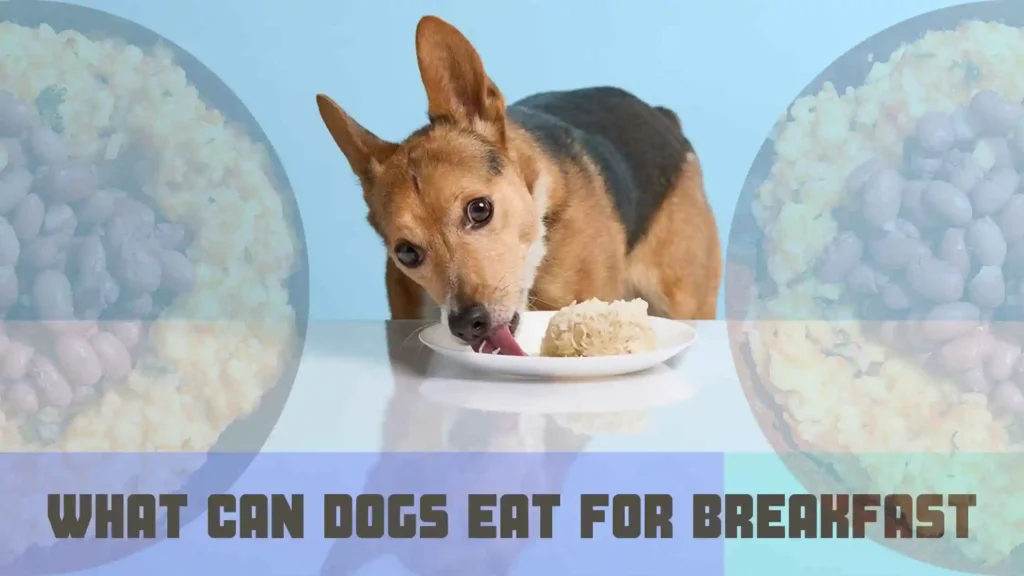
What to or What Can Dogs Eat For Breakfast
Nutritional Needs in a Dog’s Breakfast
Dogs like any other animal require balanced nutrients in animal food to be healthy just like human beings so What Can Dogs Eat For Breakfast is very confusing. Protein and fat are the essential nutrients that should be consumed in large quantities while Carbohydrates vitamins and minerals are also important in the diet of the dog during breakfast.
Muscle repair and growth are facilitated by proteins while fats are important energy-yielding substances that are supplemented by carbohydrates that offer the energy required for a day full of activity. Vitamins and minerals sustain well-being as a shiny coat or strong bones.
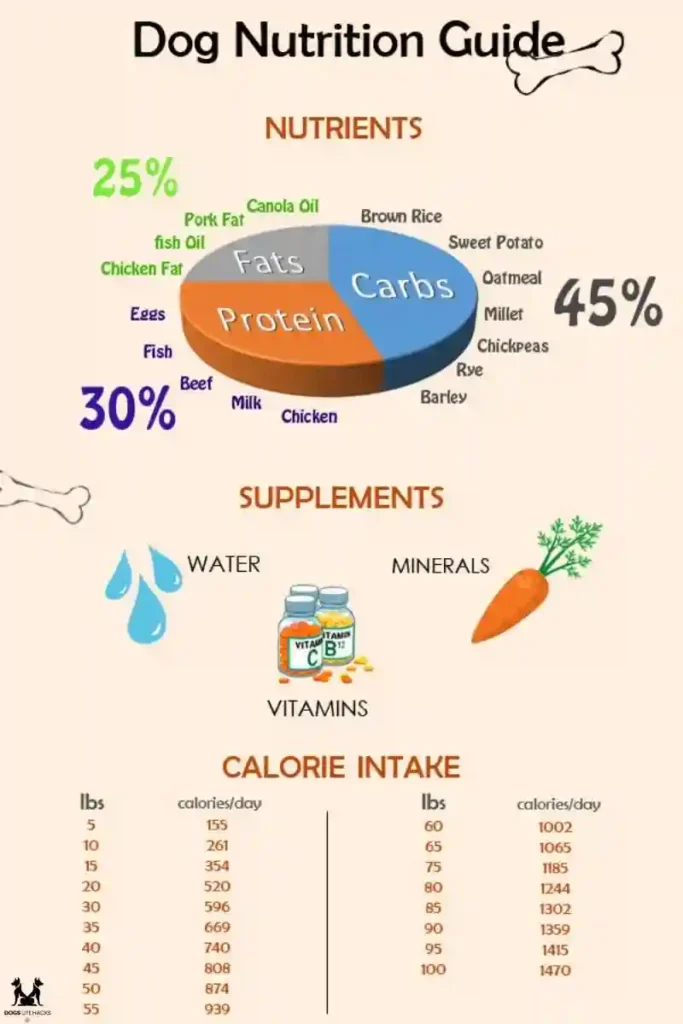
Balanced Meal Tips
Adding and combining choices don’t have to be complicated to create a balanced breakfast. A recommended meal should be based on protein, for instance, eggs or lean meat, then it should be augmented with green vegetables for vitamins and minerals and lastly supplemented with a small serving of grains or fruits for fiber and carbohydrates. Of course, make sure that your dog’s portions coincide with his size, age, and level of activity.
8 Breakfast Foods For Your Dog
Like human beings, dogs also like to enjoy a lot of changes when it comes to their meals so What Can Dogs Eat For Breakfast? The food sensitivities shall be avoided and the meals should not be repeated very often so that the meals shall not be monotonous. This is because if you feed your dog different proteins, vegetables, and fruits, he or she gets a variety of nutrients that are so important in his or her body.
Quick Breakfast Ideas for Dogs
- Scrambled eggs with spinach
- Some plain fresh yogurt is taken in a spoon with small berries on the side.
- Small chunks of cooked chicken with carrots Juxtoposed Little portions of boiled chicken with carrots
- Boiled sardines with sweet potato mashedxDB9
- Plain oatmeal with apples
- The basic meals are those prepared by boiling eggs interleaved with green beans.
- Cottage cheese with cucumbers
- Salmon flakes with peas
Leftovers
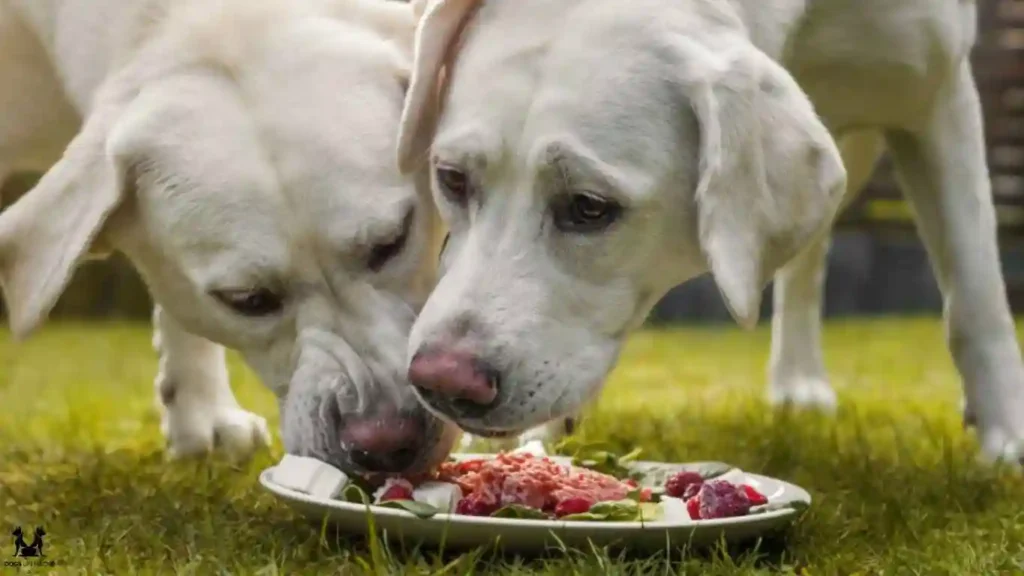
Safety Considerations
One easy way to provide nutrition for your dog is by feeding him scraps, but not all people’s foods are healthy. Do not consume food that contains garlic, onions, excessive spice, or sauces that may contain hazardous substances. There are two main precautions Bayley should take, first, checking for bones second, it should not be spoilt and not be overly seasoned.
Best Types of Leftovers for Dogs
Some of the safe leftovers are plain meats, steamed vegetables, and rice. Refrain from fatty meats, fried meals, or any type of food that has chocolate, raisins, or artificial sweeteners such as xylitol.
Eggs

Benefits of Feeding Eggs
The consumption of eggs is good as they are rich in proteins and also the essential fatty acids. It can cause shiny hair, healthy skin, and an increase in energy compared to the normal state of the animal. I also found out that they are very easy to digest and therefore can be fed to most dogs.
Preparation Tips (Boiled, Scrambled, etc.)
The most appropriate type is boiled or scrambled eggs without the use of butter or oil. To incorporate some extra nutrients, one should half-cook the eggs or occasionally consume raw eggs, though this should be done if the eggs are fresh and of good quality to prevent a situation whereby one gets attacked by salmonella.
Sardines

Nutritional Benefits of Sardines
Sardines contain omega-3 fatty acids that are good for the heart, decrease inflammation, and give your skin, and coat a healthy shine. They also contain protein and calcium as well as vital vitamins.
How to Serve Sardines to Your Dog
Choose sardines preserved in water instead of those in oil or brine. You can feed them whole or incorporate them into the dog’s meal they are usually served raw. Sardines could be given occasionally and are greatly an addition to the dogs’ breakfast giving it nutritional value and variety it needs.
Cereals
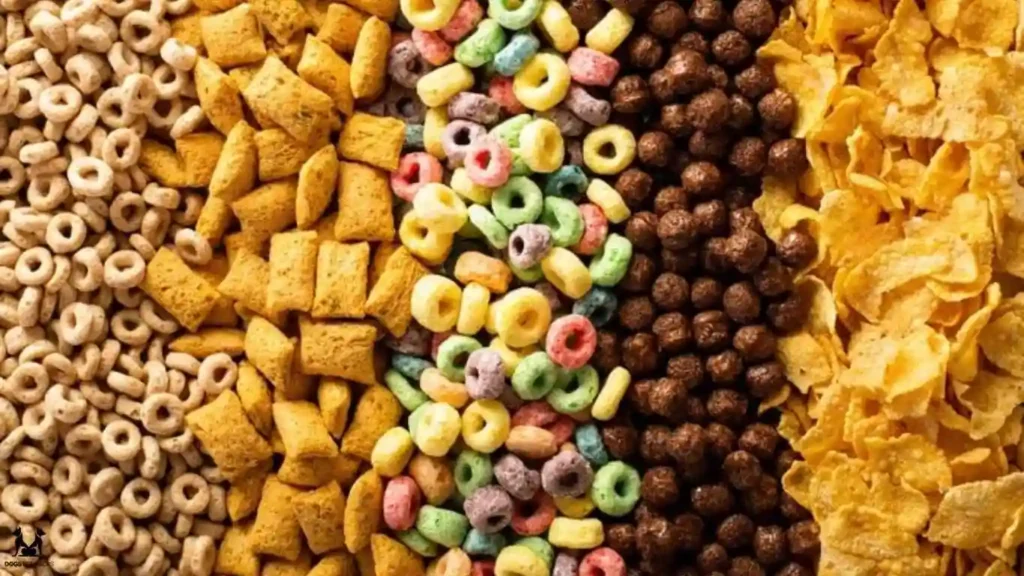
Safe Cereals for Dogs
Cereals that can be given to your dog for his breakfast food include oatmeal, plain puffed rice, or any cereals that are not sugary and contain fiber. These offer an opportunity to produce carbohydrates that would be of help in the provision of energy throughout the day.
What to Avoid in Cereals
Avoid cereals that contain sugar or high fructose corn syrup, chocolate, raisins, or artificial sweeteners. Cereals containing sugar cause obesity as well as dental problems while artificial sweeteners like xylitol are lethal to dogs.
Chicken Wings or Necks
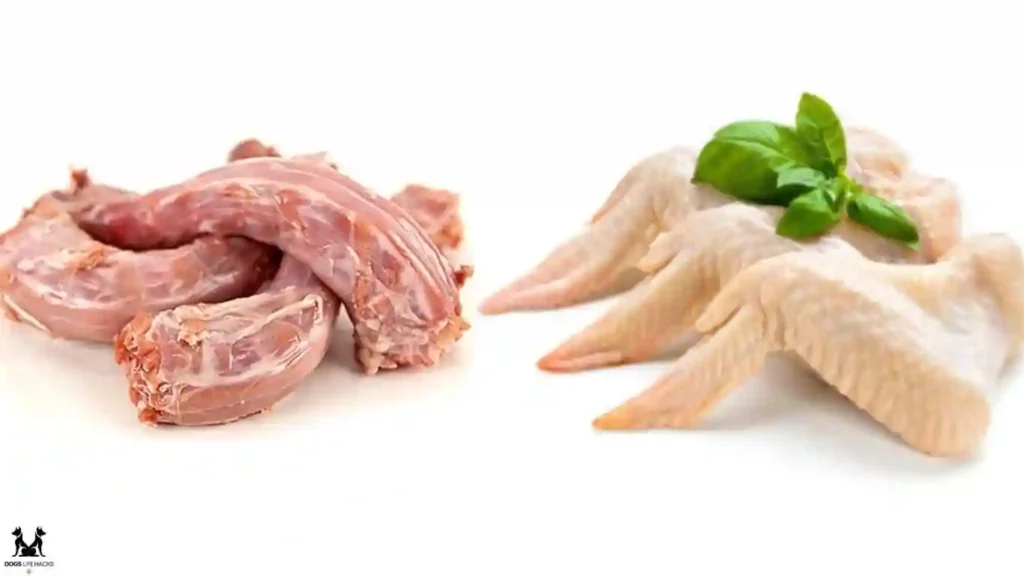
Benefits and How to Serve
Chicken wings or necks can be a wonderful source of calcium and phosphorus that is crucial to the bones and teeth. They also entertain the mind of your dog and assist in removing the tartar from the teeth as your dog chews.
Safety Tips for Feeding Bones
Feed raw bones only as cooked ones may crack and cause serious internal bleeding. It is wise that you monitor your dog during feeding time so that they can properly chew their food and not choke.
Bones
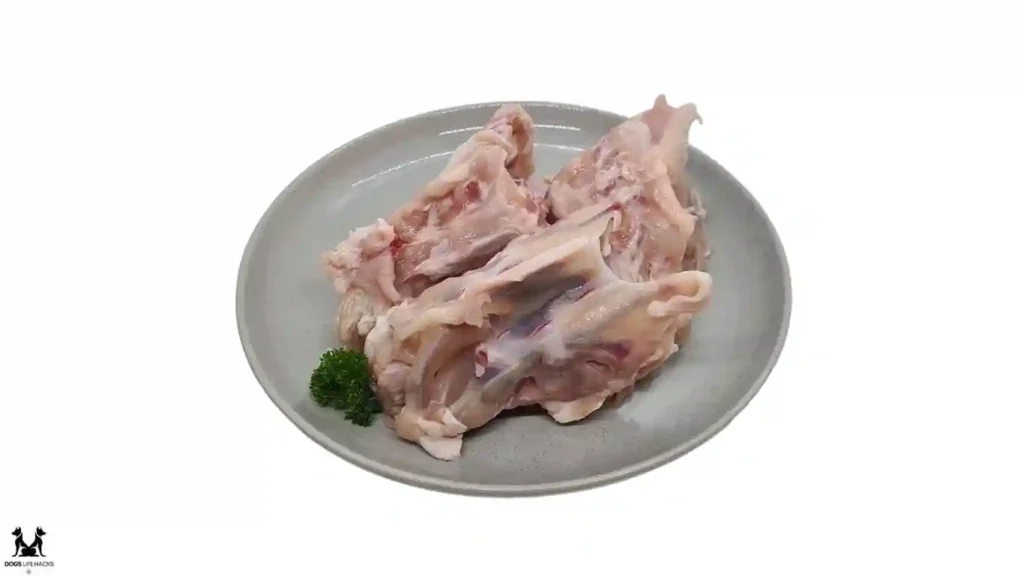
Types of Safe Bones for Breakfast
Safe choices are raw chicken necks, wings, and lamb bones. Before feeding your dog with these recipes, make sure that the bones you wish to include meet your dog’s size to avoid any instances of your dog choking on the bones.
Risks and Considerations
Never feed your beloved pet with cooked bones as they are dangerous since they splinter and may lead to fatal injuries. Remember always to select the right one that will suit your dog as far as its size and chewing professionalism are concerned.
Milk
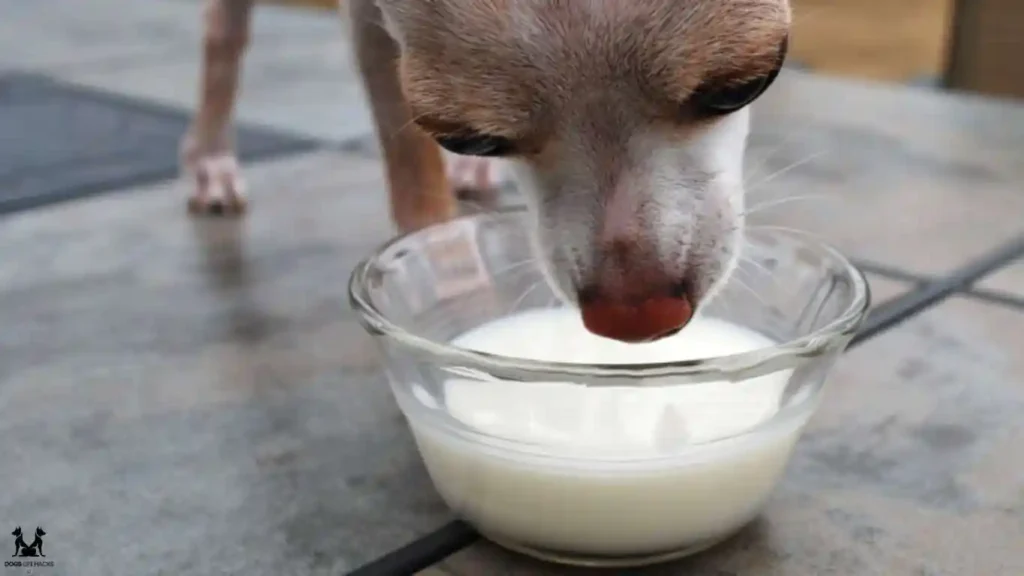
Can Dogs Drink Milk?
While some people have no problem with their dogs drinking milk in small portions, others will experience digestion problems due to lactose intolerance. To minimize intake while keeping calcium levels high, one is advised to cut on milk and go for low-lactose foods if any is needed.
Alternatives to Dairy Milk
It’s better to use lactose-free milk or goat milk or if you have a specific dog milk it will be perfect. Do not give your dog any types of milk derived from plants such as almond or soy as these are unhealthy for your dog.
Wellbeing Essentials
Supplements and Vitamins for Dogs
What Can Dogs Eat For Breakfast? It is possible to add some human food supplements in the dogs such as fish oil, probiotics, or glucosamine at the times of breakfast. You should note that the addition of any supplement or vitamin supplement should be done only under a vet’s recommendation.
Foods Rich in Essential Nutrients
Replace the esteemed foods with beneficial foods such as blueberries, spinach, and sweet potatoes because they are full of antioxidants, vitamins, and fiber.
What Should Dogs Avoid Eating For Breakfast?
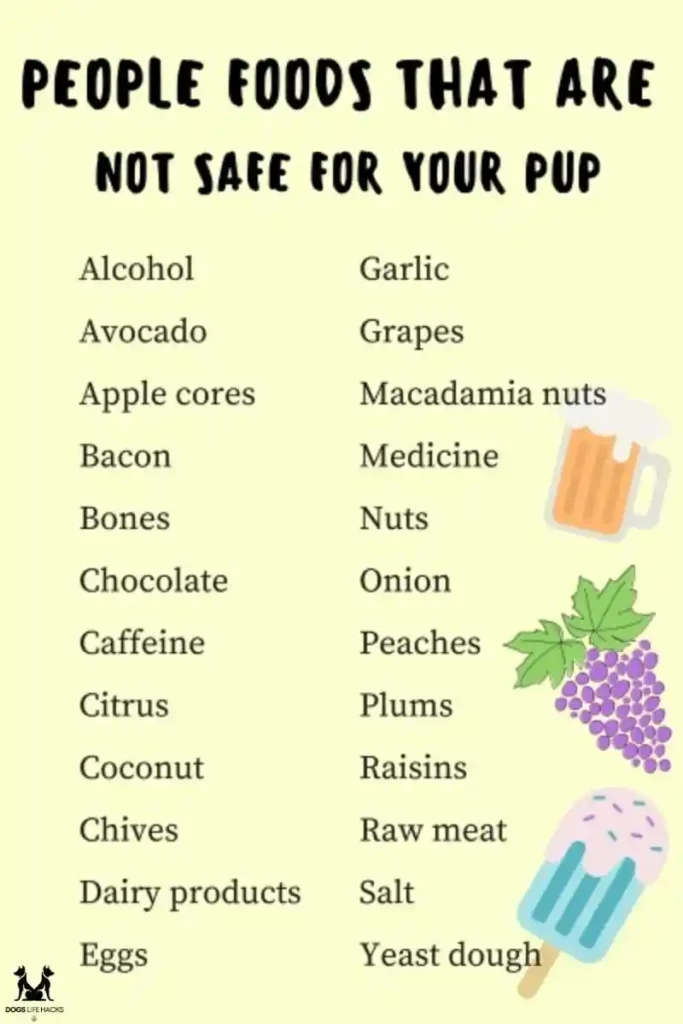
Common Breakfast Foods That Are Toxic to Dogs
What Can Dogs Eat For Breakfast? Do not feed cocoa products such as chocolate, grapes, raisins, onions, and garlic as well as foods with caffeine. These can be of very high toxicity and cause major health problems.
Specific Ingredients to Watch Out For
Be sure to pay attention to the ingredients list that may contain such things as xylitol, which is poisonous to dogs. Some of the effects of foods, that are rich in fat, sugar, or salt, include obesity, diabetes, and heart problems.
Human Foods and Meals Dogs Can Eat?
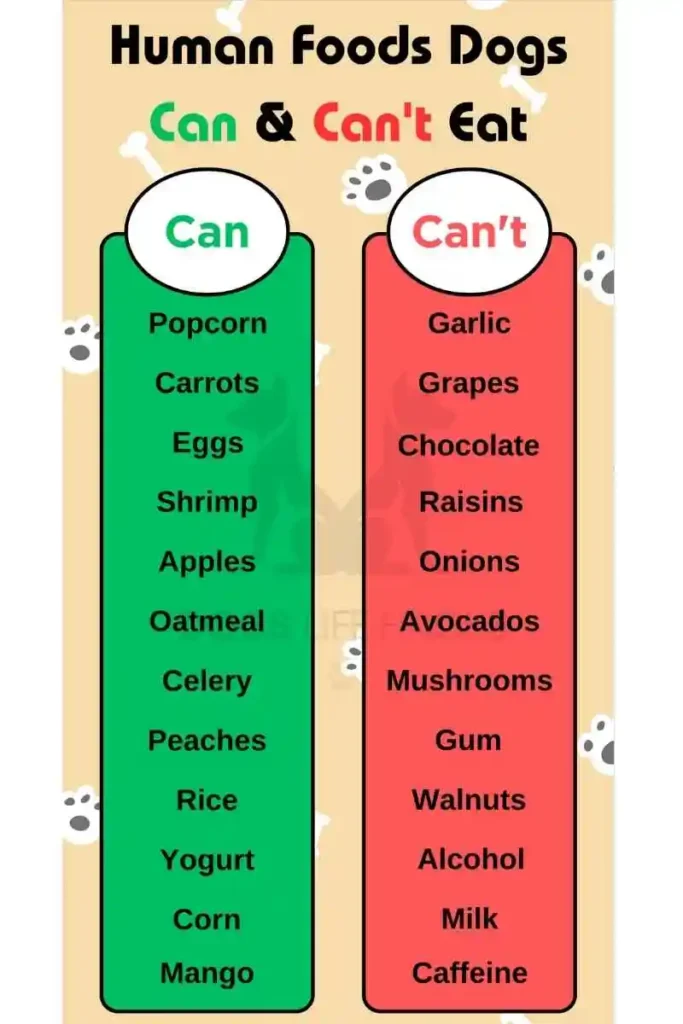
Human Meals That Are Dog-Friendly
What Can Dogs Eat For Breakfast? Recently, I also learned that plain boiled chicken, non-seasoned steamed veggies, and bland pasta are okay for dogs, but only if they come bare with no butter and spices.
Safe Serving Sizes and Preparations
Puppies should be fed according to their size and parts should not be very huge so that your dog will not feel sluggish. The meals should also not contain any foods that may contain ingredients that are possibly hazardous to the kids’ health.
Recipes for Your Dog’s Breakfast
A Spinach Omelette
Beat the eggs: Start by beating the eggs in a bowl until they are well mixed.
Add spinach: Add a few drops (or a small amount) of spinach juice or finely chopped spinach to the eggs for extra vitamins.
Use a non-stick pan: Heat a non-stick pan to cook the eggs, avoiding the use of butter or oil.
Cook the eggs: Pour the egg mixture into the pan and cook until done.
Optional additions: Add chopped vegetables like bell peppers, zucchini, or others of your choice to enhance the dish with extra nutrients.
High-protein meal: This recipe provides a simple, high-protein meal with added vitamins from spinach and other vegetables.
A Yogurt & Banana Parfait
Spread yogurt: Place a layer of plain, unsweetened yogurt down the middle of a bowl.
Add sliced bananas: Arrange sliced bananas on top of the yogurt.
Include oats or biscuits: Sprinkle oats or add ground biscuits over the bananas for added texture.
Enjoy as breakfast: This parfait makes a nutritious breakfast option.
Nutritional benefits: It provides probiotics, potassium, and fiber, which help boost digestion.
Scrambled Eggs
Use a non-stick pan: Choose a non-stick pan for cooking the scrambled eggs.
Avoid oil, butter, or seasoning: Cook the eggs without adding any oil, butter, or seasoning.
Add eggs: Crack the eggs directly into the pan and scramble them over medium heat.
Optional turmeric: Add a pinch of turmeric for its anti-inflammatory benefits.
Optional parsley: Sprinkle some parsley for fresh breath and a healthy stomach.
Serve: Enjoy your simple, healthy scrambled eggs.
Unsalted & Butter-Free Popcorn
Plain popcorn: Use plain popcorn without seasoning, salt, butter, or other additives.
No oil: Ensure the popcorn is popped without any oil.
Low-calorie treat for dogs: It serves as a low-calorie and entertaining treat for dogs.
Good source of fiber: Plain popcorn provides a good amount of fiber.
Kid-friendly: It can also be a fun breakfast snack for kids if given in small doses.
Moderation: Offer in moderation to both dogs and kids to maintain a healthy balance.
Choosing the Right Meal For Your Dog
Factors to Consider (Age, Size, Health)
When selecting the type of breakfast meal to give your dog it is important to look at the age, size, activity, and health of your dog. In puppies and grown-up dogs, the nutrient requirements are different from elderly dogs and small breeds from large breeds.
Again, affected dogs will have to be fed considering their health challenges such as diabetes or allergy, among others, this will require placing the dog on a particular diet.
Tailoring Breakfast to Your Dog’s Needs
Reduce the size of the portions and the kind of ingredients depending on the needs of the canine. For instance, dogs that have so much energy require protein and fats while dogs that have obesity issues will have to take foods with less energy but much fiber content in them. It is always advisable to seek the vet’s advice on feed requirements not forgetting the health complications of your dog.
What To Feed Dogs With Special Dietary Needs
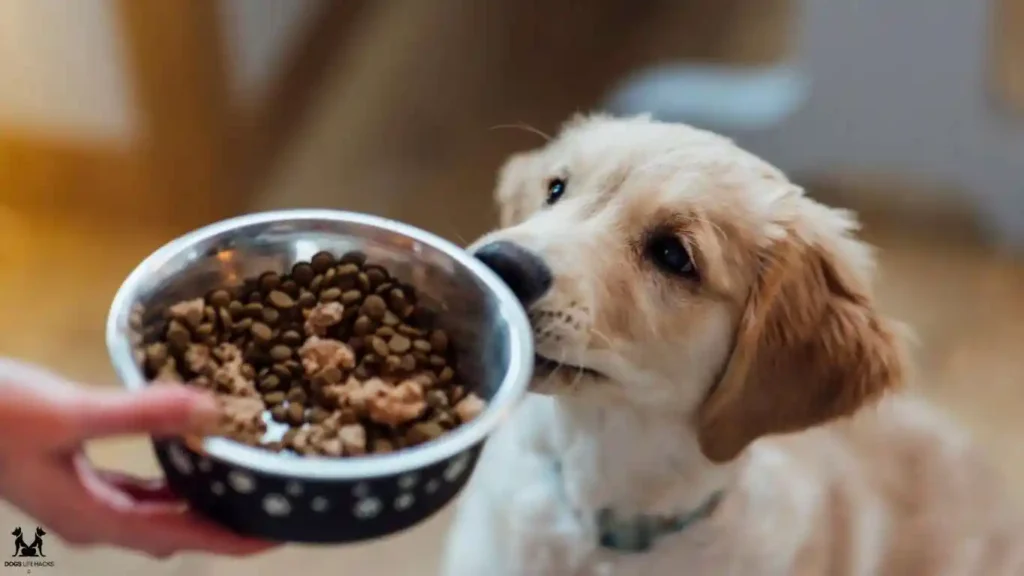
Hypoallergenic Breakfast Options
What Can Dogs Eat For Breakfast with Allergies? If the dog has some type of food intolerance or allergies then switch to hypo-allergenic foods such as duck, rabbit, or any proteins that are not commonly included in the made foods. Alternatives such as sweet potatoes or quinoa will also be beneficial since they contain complex carbohydrates.
Adjustments for Dogs with Sensitive Stomachs
In case your dog has an upset tummy, you should avoid feeding him or her foods that are rich in fiber. Some of the other mild foods that can be eaten to cure an upset stomach are boiled chicken and rice or plain scrambled eggs. Don’t consume foods that are high in fats, or spices or could upset the digestive system in worse terms.
To Treat or Not To Treat?
Incorporating Treats in Breakfast
It is okay to give treats in the morning, nonetheless, they should not exceed 10% of the total dietary allowance of your dog. Small pieces of apple, carrot, or biscuits which have been authorized for dogs should be part of the treat so as not to disrupt the healthy diet of the animal.
Healthy Treat Alternatives
It is preferable to use fruits, vegetables, or small portions of well-cooked meat or fish as the reward. Do not indulge in foods that are high in sugar, fats, or overly processed calories that would reduce our health.
Don’t Poison Your Dog With Breakfast
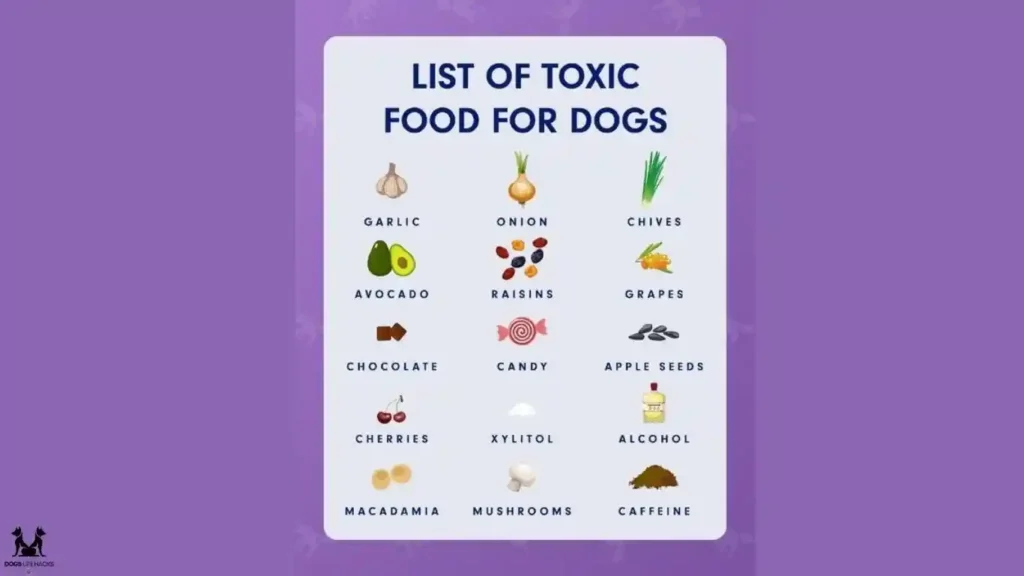
Common Mistakes to Avoid
Most human foods are poisonous to dogs and therefore should not be provided to the dog such as chocolate, onions, garlic, grapes, and some nuts. Ingredients should always be measured to avoid giving kids the wrong proportions and ensure that toxic foods are well hidden out of the kids’ reach.
How to Handle Accidental Ingestion
In case you find your dog has consumed something poisonous, call your veterinarian as soon as possible. They should be ready to give information on what was taken, the quantity, and the time when it was taken. They must be treated early so that there will be an improvement in your dog’s prognosis.
Final Thoughts
Your dog should be fed a balanced diet in the morning for him or her to have the best day. So, it is possible to incorporate various safe and quality nutrition products into your pet’s diet, while keeping it both entertaining and healthy.
Do not forget that every dog should have its breakfast according to its needs, and it is always good to seek the veterinarian’s advice in matters concerning the food to be given to the dog especially if the dog has some health condition. If you have little time to dedicate to this part of your dog’s daily feed, do not worry, it is possible to turn it into a game and make it healthy at the same time!
Frequently Asked Questions
What breakfast food can I give my dog?
Scrambled eggs have proteins that make them beneficial for the dog. You can eat them as long as they are well-cooked to avoid being infected by some diseases that are transmitted through undercooked foods.
You should scramble your eggs in a small amount of olive oil for it to be a healthier meal. Then just feed it to your dog with plain, cooked grains and vegetables in a side dish for your dog to enjoy.
What should I give my dog in the morning?
Breakfast cereals are brilliant, rolled oats porridge instead of cornflakes because a bowl of cornflakes with milk and topping it up with cottage cheese or yogurt (or boiling an egg).
For more information on this, refer to our blog section, although the above mix does not include very many vegetables, it would add some more antioxidants if some berries were included.
Should you give your dog breakfast?
As for the number of meals, it also differs and depends on the schedule and the members of the family as well. Dogs should be fed at least twice a day with a gap of about 12 hours between feeding times.
But having breakfast, lunch, and dinner is also a good system to adopt in your daily life. When it is possible to be 12 or more hours between the last meal and the next one it is possible to have nausea as a result of hyperacidity of the stomach.
Can I give my dog Cheerios for breakfast?
Cheerios have little sugar content in them and any dog will be happy with the taste and feel of the cereal. They will not cause further discomfort on the dog but they do not significantly offer any good impact.
Cheerio is mostly made up of, whole grain, oats which does not benefit your pet in any way by providing any nutrient that is necessary for their diet.
What is the best morning routine for a dog?
Take your dog out for a walk at dawn for him to relieve himself or defecate. Then provide food for often called breakfast and make sure the water bowl is refilled. Stay together for as long as you can before other tasks call you before you go out. They might have to go out again for a potty break 10-30 minutes after meal time.
Related Blogs
- Delicious & Good Snacks For Dogs For Happy & Healthy Pets
- Can Dogs Have Almond Milk? Find Dangerous Surprising Truth!
